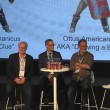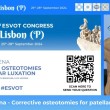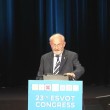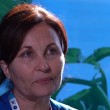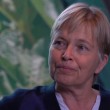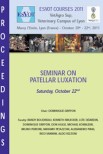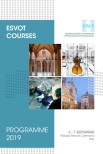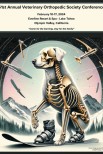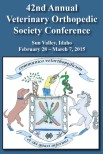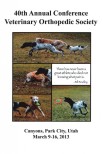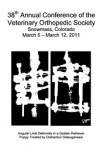William Liska, DVM, DACVS
Global Veterinary Specialists, Texas
DVM – Iowa State University 1973
Internship and Surgery Residency – The Animal Medical Center New York City 1973 - 1976
Westbury Animal Hospital – Houston, Texas 1976 – 1988
Gulf Coast Veterinary Specialists (Founder) - Houston, Texas 1988 – 2013
Global Veterinary Specialists (Founder) 2014 - Future
At what age did you know that you wanted to become a veterinarian?
The desire to become a veterinarian was an inherent aptitude starting at a very early age. I grew up on a small farm in rural Nebraska right in the middle of the USA. Dogs, cats, and livestock were always part of my life. I had responsibilities to complete daily chores taking care of the animals. We always had at least 2 dogs (one of which was my own dog), a barn full of cats, chickens, ducks, pigs, horses, milk cows, cattle to fatten in the feed yard, and pure bred Angus cows and bulls. I liked them all.
Both of my older brothers became veterinarians. I was sure I was interested in science, but not certain what profession I would pursue. I worked as an Orderly in a human hospital after my second year in college. That convinced me that veterinary medicine was for me. I changed my curriculum that summer and entered veterinary college after my third undergraduate year. From then on, I did my best to follow my parents’ advice which was “Do what you love to do and do it very well”.
When did you decide to specialize in Orthopaedics, and who were your mentors?
Like my brothers, I was on course to become a large animal veterinarian until the Christmas holiday break during my second year in veterinary college. At that time, I was working with them de-horning young cattle. The temperature was -20⁰C, the wind was blowing snow from the north, our shelter from the weather was the south side of a barbed wire fence, and ice was forming on our hands. I decided that day to strongly consider all small animal options.
During the summer between my second and third year in veterinary college, I worked in a primary care practice with a veterinarian (Harlan Jensen) who was once on the surgery faculty at Iowa State University. From that point on, I have always loved surgery. My dreams were fulfilled when I was accepted as an Intern, and then a Surgery Resident at The Animal Medical Center in New York. My surgeon mentors included DeHoff, Greene, Greiner, DeAngelis, Olds, Stoll, Prata, Sinabaldi, Withrow, and Arnoczky. It was a wonderful ride – small town farm boy in the big city with these guys!
Life as a veterinary surgeon is great and has even exceeded my expectations! I have done surgery from the nares to tail fractures – and almost everything in between. My early career experiences as a surgeon in a primary care practice helped me long term by providing an understanding of the perspective of a referring veterinarian. I understand what they need and what they want for their clients. Years of soft tissue surgery also made me a better all-around surgeon because it forced me to continue to learn more about necessary concurrent medical therapy during pre- and postoperative care.
My affinity to orthopedics grew progressively and has not stopped. Further specialization in joint replacement surgery is the joy of my career. The educational value of performing over 1800 consecutive hip replacement surgeries and following over 650 THRs for the animals’ lifespan in a registry required time, work, and persistence. Eventually, it became somewhat of a “work hobby”. Hundreds of successful outcomes have been indescribably rewarding for clients and animals. Now, success is always my expectation – not just something to hope for. Detecting, resolving, and preventing complications are a bottom line for me, and I am not shy about presenting the facts as I see them for the future well-being of dogs and cats everywhere.
Global Veterinary Specialists is now my career focus with no thoughts of “retirement”! I feel fortunate to be able to do exactly what I want to do – mostly joint replacement surgery – on a busy schedule. The opportunity to scrub with and to mentor other veterinary surgeons is a very rewarding bonus at this stage of my career with hopes of continuing indefinitely.
What do you think the future holds for veterinary orthopaedics?
There is no question in my mind that the future is bright for veterinary orthopedic surgeons. The foundation for continued future excellence is laid. We will continue to build on that foundation. We will improve on informing the public about the surgical expertise we possess. We will also question self-serving detractors at the podium. Animal owners’ bond to their companion animals creates demand for specialized services, and we will meet the demands. We will recognize the unworthiness of subjective evidence when evaluating outcomes in the pursuit of evidence based medicine. We will be leaders and will not shy away from letting it be known that it is time to abandon outdated procedures when new options provide consistently better outcomes. In my opinion, femoral head ostectomy is a classic example of an outdated procedure that should be abandoned as a primary recommendation for almost all non-septic hip problems. No one else will be more demanding than surgeons to develop and refine new procedures, to perfect instrumentation, and to design durable implants. I am confident veterinary orthopedic surgeons around the world will continue to demand excellence of themselves that will maintain the specialty as the envy among the other veterinary specialties.
